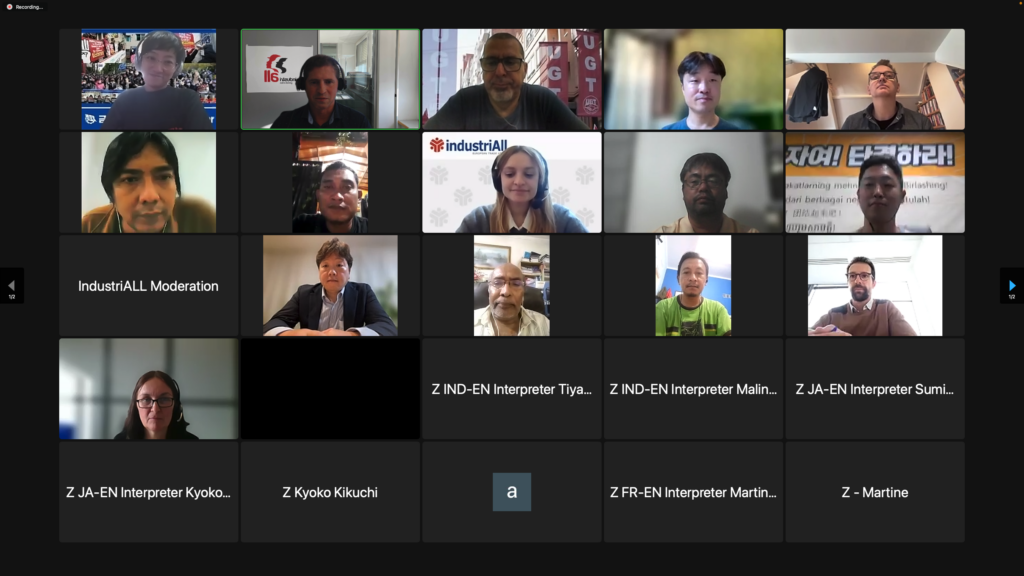30 October, 2023The second virtual meeting of the global semiconductors trade union network took place on 16 October, bringing together 25 experts and union representatives from 12 countries to address challenges in the fast-changing industry.
Discussions focused on developments in the industry, with the market size promising to reach a record US$1.9 trillion in ten years. The semiconductor shortage during the Covid pandemic exposed vulnerabilities in the supply chain.
The US-China trade war has led to limitations on high-end chip sales and export restrictions on vital chip manufacturing metals, threatening with new supply chain disruptions. The semiconductor industry, despite aiding carbon reduction, at production stage significantly contributes to CO2 and other greenhouse gas emissions. The chips production requires copious water and energy use. There is a lack of designers while the demand for high-end semiconductors keeps growing.
Aurora Rossi, policy adviser at industriAll Europe, presented on Europe's semiconductor industry, its critical role in various sectors, and the challenges it faces. The European Chips Act was introduced to increase Europe's market share from 9 to at least 20 per cent by addressing fragmented supply chains and supply disruptions.
Jeroen Merk, from the Good Electronics Network, described the industry's rapid growth and concentration of capital among a few companies. Issues like labour shortages, occupational health and safety, and resistance to unionization were also part of his presentation. The geopolitical context and the industry's struggle to secure the semiconductor supply chain were also highlighted.
Using the example of France and Spain, participants discussed health and safety systems in the chips industry, emphasizing the importance of protecting workers from toxic products and risks. There is a need for stronger standards in the north, which could also help to improve the situation for workers in the global south.
Based on the example from South Korea, the importance of recognizing and addressing occupational diseases in the semiconductor and electronics industry, including government recognition and a compensation system for affected workers, was highlighted. The difficulty of proving workplace-related health issues and the need for increased awareness and research remain problematic.
Challenges and efforts related to organizing semiconductor companies in Malaysia, along with discussions about upcoming labour law reform and the impact of the European Chips Act and the US CHIPS and Science Act on the industry were further subject of discussions at the meeting.
Participants want to continue to debate organizing drives, health and safety, as well as supporting workers in the electronics industry. The meeting emphasized the importance of sharing information and working together for a brighter future for semiconductor workers.
Alexander Ivanou, IndustriALL ICT, electrical and electronics director, said:
"This network is evolving; improved knowledge of company locations and union presence is essential as new jobs are being created in the semiconductor industry. IndustriALL will continue to support affiliates in organizing; as unions, we can offer workers our considerable experience and knowledge to ensure their health and safety and to protect their human and labour rights.”


